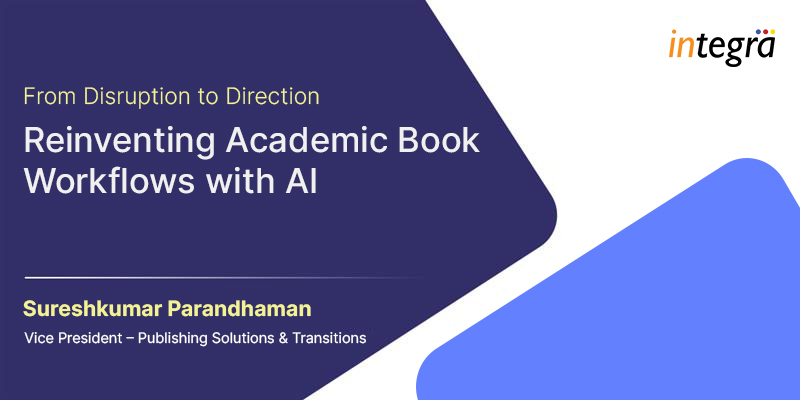
With the rapid advancement of technology, online learning management systems (LMSs) have become the bedrock on which the best learning experiences are built. They not only provide a central repository for all learning resources, but they also facilitate engaging and interactive learning experiences. They are powerful platforms that empower educators and businesses to offer relevant, timely learning because they offer:
- Efficient education delivery
- Engaging learning experiences
- Data-driven decisions for the development and delivery of learning materials
- Flexibility and immense scalability
- Inclusivity and accessibility for equitable learning for all.
- Accelerated resource building and time to market.
Ensuring Usability of the LMS
While education has been significantly eased with AI-powered learning management systems, any LMS is only as good as its usability. Usability is defined as the ease with which the platform can be used and the quality of user experiences it offers. Careful thought is needed while choosing a learning management system for business or education, by ensuring that it powers you to manage time and focus on learning quality.
Here’s a look at the key factors to consider.
1. Flexible and Customizable
Educational institutions, publishers, and businesses want their learning resources to be easily distinguished from others in the market. Therefore, not only should the LMS facilitate quick content authoring with easy integration of multimedia and gaming elements, but it should also allow the platform to be tailored to give a complete brand experience, complying with organizational, industry and regulatory standards.
2. Intuitive Interface and Responsive Design
The platform should be easy to use for people of all ages, from pre-primary students to the oldest employee. This requires an intuitive interface that allows easy navigation and discoverability of relevant content, responsive design to fit all screen sizes, offline access to content to ensure anytime, anywhere learning, seamless onboarding for new users, and minimal training required to make the most of the LMS.
3. Tools for Collaboration
The power of peer learning and the spirit of teamwork can be best leveraged with platforms armed with tools to facilitate communication. This can include discussion forums, message boards, video conferencing, group assignments, etc. Educators and students should be able to seamlessly communicate with each other, while teachers should be able to keep parents informed of their child’s learning progress in K-12 education. Tools to organize learning are also useful in setting up effective schedules, building consistency of learning, establishing course calendars, and sending out notifications and reminders. In fact, 72% of students in higher education say that powerful learning technology platforms help organize their learning for better outcomes.
4. Powerful Analytics
Access to custom analytics and reporting ease decision making by providing insights into learning progress, content consumption patterns, engagement levels across content types and topics, adoption rates and more. Strategic decisions regarding educational course development, content formats, gamification elements, and personalized support become effortless with a robust analytics engine built into the AI-powered online learning management system.
How to Test LMSs for Usability
It is crucial to test the usability of an LMS to ensure that the platform powers you to achieve specific outcomes, in line with your business and educational needs. After all, when you make an investment in technology, you want the investment to bring you the best ROI for the longest time. Some of the tests before finalizing an LMS are:
- Manual testing of user experience, such as intuitive dashboards, easy modification of course modules, high content discoverability, etc.
- Anytime, anywhere access with compatibility across devices and operating systems.
- Automated system checks to test the efficiency and quality of the platform and its software, API functionality, performance tuning, multimedia, patch testing of applications, etc.
- Data security and privacy test to ensure compliance with regional, federal and international regulations.
Desirability: Making the LMS Appealing for Users
The visual design is as important as the features included in the online learning management system for business or K-12 and higher education. The most important elements to keep in mind to maximize the appeal of the platform for all user roles include:
1. Visual Aesthetics
Research has proven that visual design can have a significant impact on learning experiences. It can enhance engagement and motivation by grabbing attention. Also, by decluttering and organizing resources, visual design can help build reduce cognitive processing load, allowing intuitive access to relevant materials. This way, learners can focus their attention on the content itself, rather than worrying about how the resources are organized. It also helps provide information in a decluttered, easy-to-understand manner.
Did you know that visual design also plays a key role in the platform being perceived as credible and valuable? Even the tech-savvy world does judge a book by its cover!
2. Optimal Engagement
A learning management system, bolstered with the power of AI, can offer interactive and immersive learning experiences to maximize engagement, motivation, and active learner participation. Ease integration of multimedia elements for interactivity, and implementation of gaming elements, such as quizzes, badges and leaderboards, are incredibly effective for these purposes.
3. Personalized Learning
The importance of personalized learning experiences cannot be overemphasized for the optimal achievement of learning outcomes. Easy customizations and tools to curate personalized learning journeys that suit individual learning goals, skill levels, and abilities, can ensure the delivery of adaptive learning. Plus, support can be provided as and when needed to make sure that every student has opportunities to excel.
4. Accessibility and Inclusivity
DEI is much more than just a part of the world’s Sustainable Development Goals. Accessibility and inclusivity build a culture of equitable opportunities, and sensitivity to differences. Choose an LMS that powers accessibility via inbuilt assistive technologies, such as:
- Text-to-speech and speech-to-text functionalities.
- Adjustable font sizes and contrast settings.
- Closed captions for video content.
Aligning the LMS with Learning Objectives
While most good online learning management systems are powered with core features that ease learning, great ones distinguish themselves with value-added features. These can include powerful tools for the development and distribution of learning resources, assessments and scoring modules, digital rights management with support for multiple licensing types or subscription models, easy API-based integration of third-party tools and plugins, and more. The aim is to provide exceptional experiences to students, educators, administrators, L&D teams, and educational publishers.
Integra’s proprietary platform, SkillPilot, has been rigorously tested for usability through every stage of development. Plus, our customers are proof of the high performance and impressive results offered by the AI-powered online learning management system for education and business. Request a demo to learn more.
Recent Blogs

Research Integrity vs. Publication Integrity: Clarifying Responsibility in Scholarly Publishing

From Disruption to Direction: Reinventing Academic Book Workflows with AI


